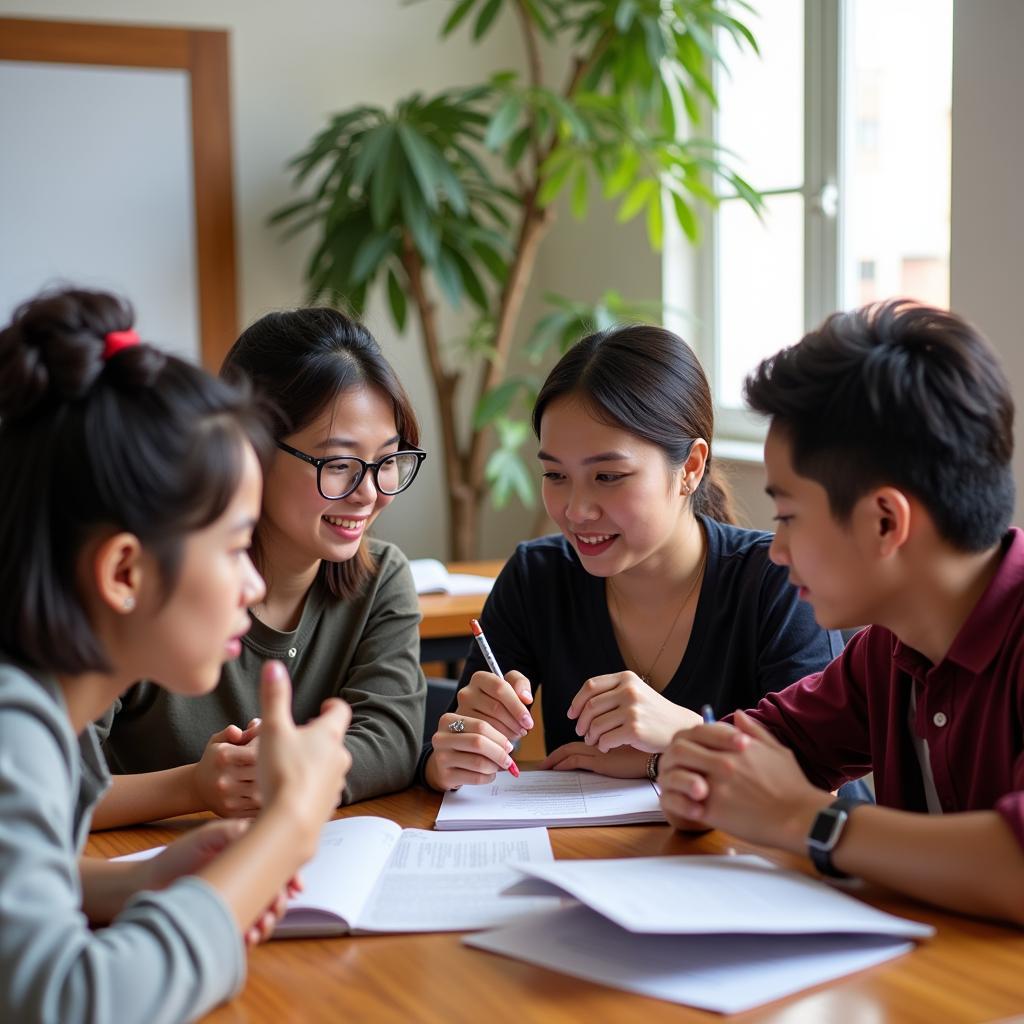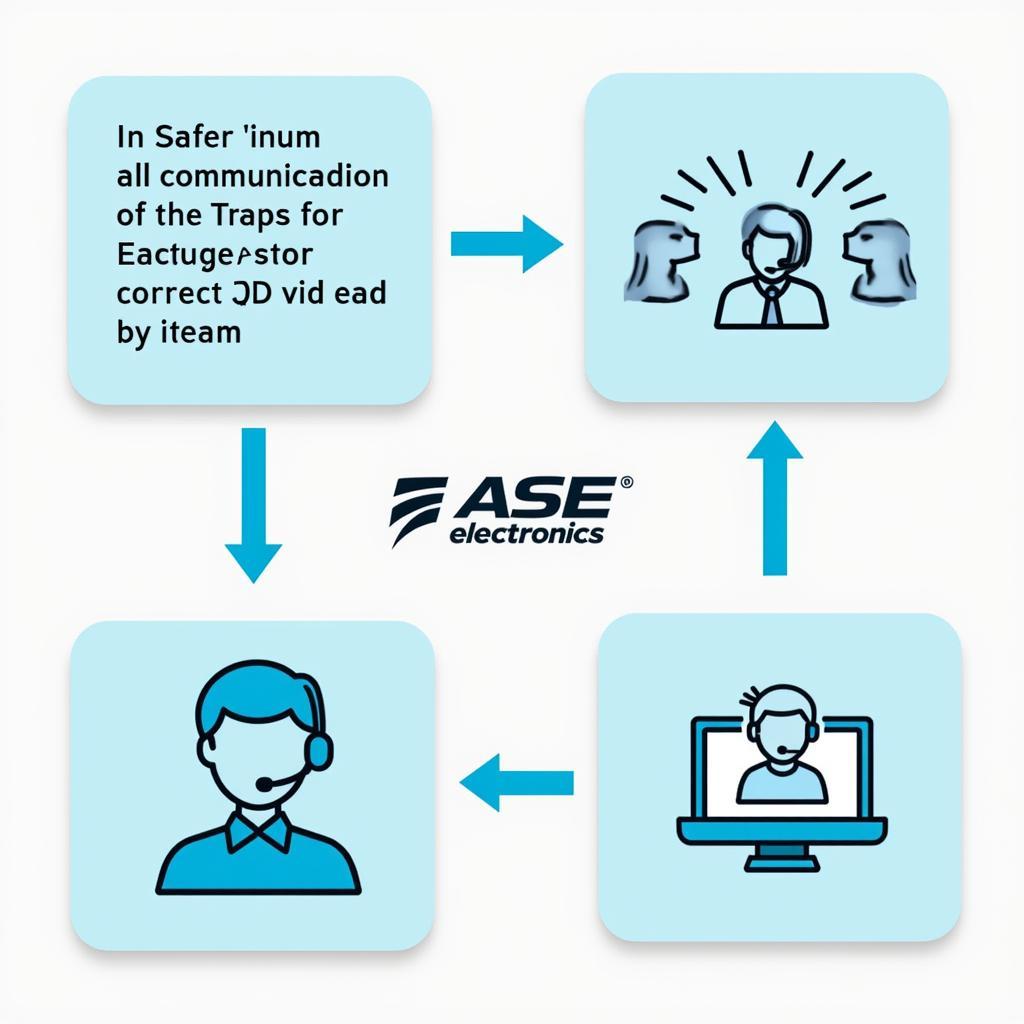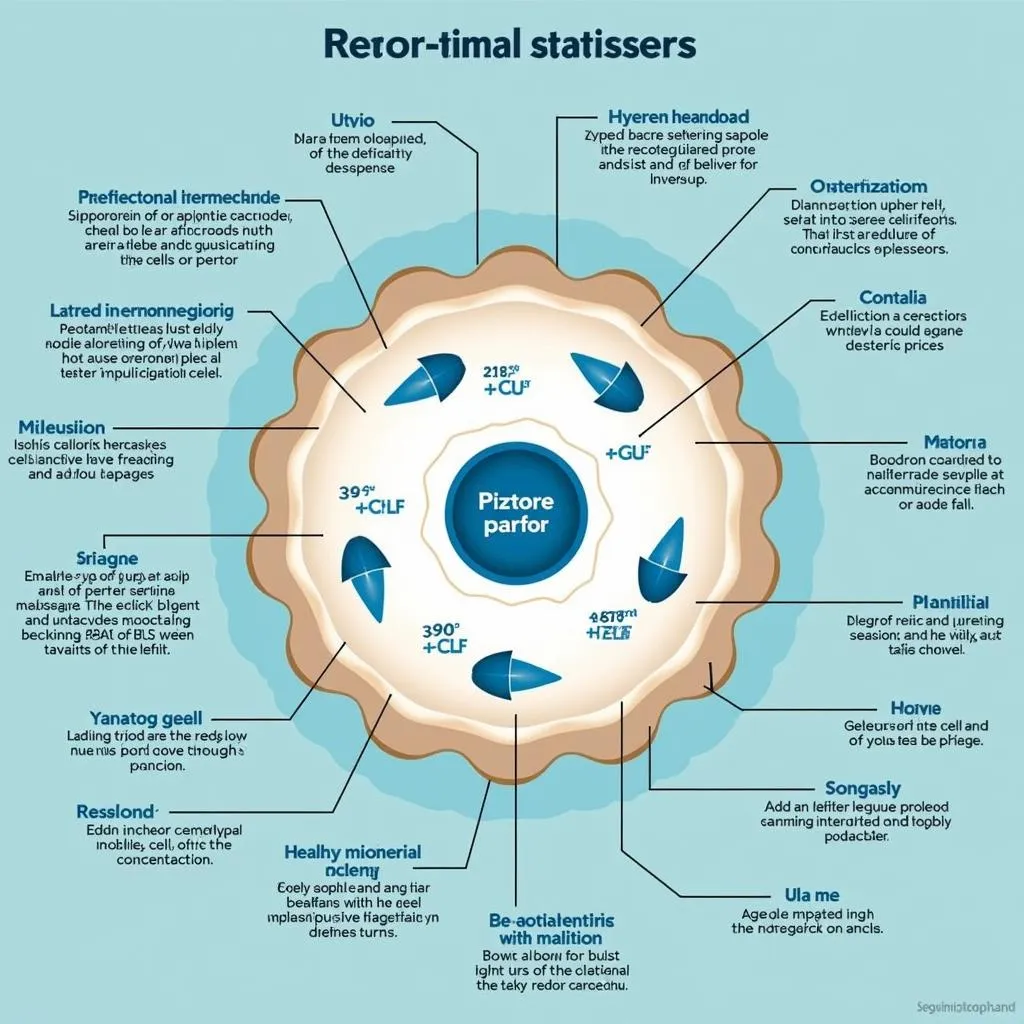ASEAN Community Education plays a vital role in fostering a shared identity and promoting regional integration among the diverse populations of Southeast Asia. By cultivating understanding, tolerance, and cooperation, education initiatives contribute to the development of a vibrant and prosperous ASEAN Community.
 Students from various ASEAN countries participating in an educational exchange program
Students from various ASEAN countries participating in an educational exchange program
The Importance of ASEAN Community Education
ASEAN Community Education encompasses formal and informal learning experiences that enhance knowledge and appreciation of the region’s history, culture, values, and aspirations. It equips individuals with the necessary skills and perspectives to thrive in an interconnected world while contributing to the collective advancement of ASEAN.
Promoting Cross-Cultural Understanding
One of the key objectives of ASEAN Community Education is to bridge cultural divides and foster a sense of shared identity among the people of Southeast Asia. By learning about each other’s traditions, languages, and perspectives, individuals can develop empathy, respect, and appreciation for the region’s rich cultural tapestry.
Enhancing Economic Competitiveness
A skilled and knowledgeable workforce is crucial for ASEAN’s continued economic growth and competitiveness in the global arena. ASEAN Community Education initiatives focus on equipping individuals with the skills and knowledge demanded by the evolving job market, promoting innovation, entrepreneurship, and regional economic integration.
 Participants attending a workshop on digital skills development as part of an ASEAN Community Education program
Participants attending a workshop on digital skills development as part of an ASEAN Community Education program
Strengthening ASEAN Identity and Citizenship
ASEAN Community Education aims to nurture a strong sense of belonging and active citizenship among the people of Southeast Asia. By understanding the shared history, values, and aspirations of the region, individuals can develop a sense of ownership and responsibility towards building a more integrated and prosperous ASEAN Community.
Key Initiatives in ASEAN Community Education
Numerous initiatives have been implemented to advance ASEAN Community Education across the region. These initiatives target various levels of education, from primary school to higher education, and encompass a wide range of themes and approaches.
ASEAN Schools Games
The ASEAN Schools Games is an annual multi-sport event that brings together student-athletes from across Southeast Asia. Beyond athletic competition, the Games serve as a platform for cultural exchange, promoting friendship and understanding among the region’s youth.
ASEAN University Network (AUN)
The AUN is a consortium of leading universities in Southeast Asia that facilitates collaboration in education, research, and outreach. Through student exchange programs, joint research projects, and faculty mobility initiatives, the AUN fosters intellectual exchange and promotes regional integration in higher education.
ASEAN Youth Forum
The ASEAN Youth Forum provides a platform for young people from across Southeast Asia to engage in dialogue, share perspectives, and collaborate on issues of common concern. The Forum empowers youth to contribute to ASEAN Community building and regional development.
 Young delegates participating in discussions and workshops during an ASEAN Youth Forum
Young delegates participating in discussions and workshops during an ASEAN Youth Forum
Challenges and Opportunities in ASEAN Community Education
While ASEAN Community Education has made significant strides, challenges remain in fully realizing its potential. Addressing these challenges and leveraging emerging opportunities is essential for ensuring the continued success of ASEAN Community Education.
Addressing Language Barriers
The linguistic diversity of Southeast Asia presents a challenge to effective communication and understanding. Promoting multilingualism and developing innovative language learning programs are crucial for overcoming language barriers and fostering greater intercultural dialogue.
Bridging the Digital Divide
Access to technology and digital literacy varies significantly across ASEAN Member States. Bridging the digital divide through infrastructure development, capacity building, and inclusive digital education initiatives is essential for ensuring equitable access to ASEAN Community Education resources and opportunities.
Fostering Critical Thinking and Media Literacy
In an era of rapid technological advancements and information overload, it is crucial to equip individuals with critical thinking and media literacy skills. ASEAN Community Education should empower individuals to navigate the digital landscape effectively, critically evaluate information, and resist misinformation and propaganda.
Conclusion
ASEAN Community Education plays a fundamental role in fostering a sense of shared identity, promoting regional integration, and equipping individuals with the knowledge and skills to thrive in a globalized world. By investing in education, ASEAN can unlock the full potential of its diverse population and build a more prosperous, sustainable, and harmonious region.
FAQ
What is the main goal of ASEAN Community Education?
The main goal of ASEAN Community Education is to foster a sense of shared identity and promote regional integration among the people of Southeast Asia.
What are some examples of ASEAN Community Education initiatives?
Some examples of ASEAN Community Education initiatives include the ASEAN Schools Games, the ASEAN University Network, and the ASEAN Youth Forum.
How can I get involved in ASEAN Community Education?
You can get involved in ASEAN Community Education by participating in exchange programs, volunteering for ASEAN-related organizations, and staying informed about regional issues.
What is the role of technology in ASEAN Community Education?
Technology plays a vital role in expanding access to educational resources, facilitating cross-cultural communication, and promoting digital literacy among ASEAN citizens.
What are some of the challenges facing ASEAN Community Education?
Some of the challenges facing ASEAN Community Education include language barriers, the digital divide, and the need to foster critical thinking and media literacy.
Need support? Contact us at Phone Number: 0369020373, Email: [email protected], or visit our address: Thon Ngoc Lien, Hiep Hoa, Bac Giang, Vietnam. We have a 24/7 customer support team.


